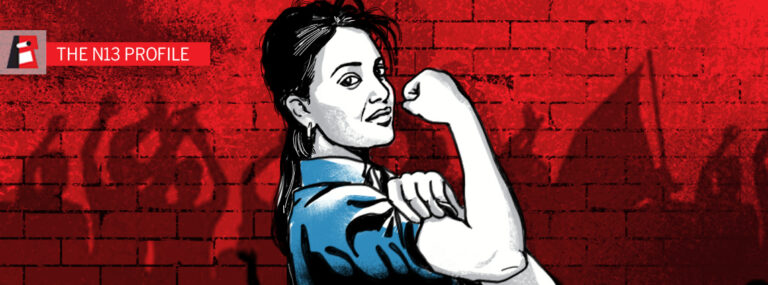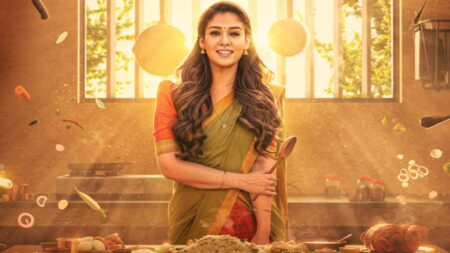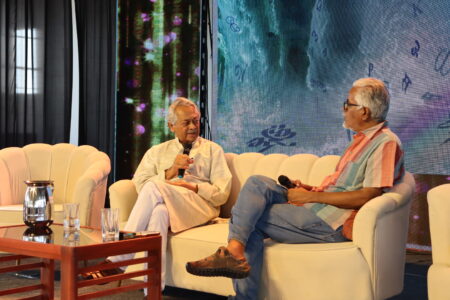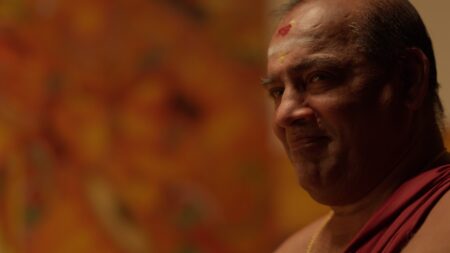Hardline opposition to Hindutva and support for progressive movements — the strong-willed actor-activist who expresses her political choices fearlessly is a refreshing rarity in Bollywood
Earlier this week, Indian elites erupted in anger on Twitter when a pregnant elephant died in Kerala after eating a coconut laden with explosives. The incident was misreported earlier. An NDTV reporter claimed that the elephant was fed an explosive-laden fruit in Malappuram. BJP leaders from Maneka Gandhi to Prakash Javadekar and celebrities, from Puja Bhatt to Virat Kohli and Akshay Kumar, tweeted expressing their “anger” and “agony”.
The BJP leaders grabbed the opportunity to attack Malappuram, one of the few Muslim-majority districts in the country, giving the incident an indirect communal spin. Later, investigations found that the elephant, which was pregnant, was not fed explosive-laden fruit but accidentally ate it, which was set as a trap for wild boars by a farmer. And it didn’t occur in Malappuram but in the neighbouring Palakkad district.
When the Twitter firestorm over the dead pregnant elephant was blowing out, many others pointed out the April arrest of Safoora Zargar, a 27-year-old pregnant woman, in connection with the February riots in Delhi. Zargar, a student of Jamia Millia Islamia (JMI) University, was at the forefront of the protests against the Citizenship Amendment Act (CAA). She was arrested on April 10 and charged under the draconian Unlawful Activities Prevention Act, 2019 (UAPA), by the Delhi police. Bollywood actor Swara Bhasker took up the issue on Twitter on June 5. “A PREGNANT WOMAN IS IN JAIL FOR BLOCKING A ROAD!!!!! What have we become??? she tweeted. “Terror accused MP #PragyaThakur got bail! Blocking a road is a greater crime in #NewIndia than being accused of terrorism! 👏”
In next to no time, the right-wing Twitterati turned against her. The next day, #ArrestSwaraBhaskar was trending on Twitter. But Swara would not back off. She retweeted an image of the trending hashtag, with a comment, “And that my friends.. is why most celebrities in India only raise their voices for elephants!” In effect, she exposed the double standard of her co-celebrities, the shallowness of the elephant campaign, declared solidarity with a pregnant woman who’d been jailed at the time of the Covid-19 outbreak and reasserted her political beliefs — all in one tweet. “You can’t bully Swara. She cut her teeth in JNU,” says a friend of Swara’s, who knows her from “their JNU days”. “Swara is a sensitive person. But she knows what she does. And she won’t compromise on her core beliefs, no matter how hard you try it on Twitter.”
Actor and activist
Born in 1988 to Commodore Uday Bhaskar and Ira Bhaskar, who teaches at JNU, Swara was brought up in Delhi. She did BA in English literature at Delhi University and masters in sociology in JNU, the so-called ‘anti-national university’ in the right-wing parlance, a tag which the trolls often use to attack her. Before being active in the movies, Swara had been associated with N.K. Sharma’s ‘Act One’ theatre group in Delhi.
Sharma, a guru of many theatre artists in Delhi, had worked with Safdar Hashmi, the communist playwright and actor and founder of Jana Natya Manch, who was murdered in 1989 in Jhandapur, Uttar Pradesh, while performing a street play, Halla Bol. Swara made her acting debut with the 2009 film Madholal Keep Walking, which was screened at the 33rd Cairo International Film Festival. She won both fame and praise for her role in the 2011 hit Tanu Weds Manu. With Raanjhanaa, in which she acted with Tamil star Dhanush and Sonam Kapoor, Swara has come of age in Bollywood.
But she didn’t shrink herself into the comfort of her celebrity status. She’s known for speaking her mind out, while most Bollywood celebrities tread cautiously when it comes to political issues. She has stood up to women’s rights, secularism and other constitutional values of the country, which made her a favourite troll-target on Twitter. When Sanjay Leela Bhansali’s controversial Padmaavat was released in 2018, Swara wrote an open letter to the man who directed her in Guzaarish.
‘At the end of your magnum opus… I felt reduced to a vagina – only’, she wrote attacking the portrayal of women in the Padmaavat and its glorification of Sati and Jauhar. “You may be wondering why the hell I am going on and on thus about vaginas. Because Sir, that’s what I felt like at the end of your magnum opus. I felt like all the ‘minor’ achievements that women and women’s movements have made over the years – like the right to vote, the right to own property, the right to education, equal pay for equal work, maternity leave, the Vishakha judgement, the right to adopt children…… all of it was pointless; because we were back to basics,” she said in the letter.
Openly political
During the 2019 general election, Swara hit the street for her favourite candidates. She campaigned for Aam Aadmi Party’s Atishi Marlena in East Delhi. She showed up in Bihar to campaign for Kanhaiya Kumar, the former JNU Students Union President, who was contesting from Begusarai, and shared stage with Kanhaiya and Dalit leader and MLA from Gujarat Jignesh Mevani. “We need leaders like Kanhaiya Kumar and Jignesh Mevani in Parliament,” she said at one campaign event.
When the country witnessed mass uprisings against the CAA, she joined the protests outside the Jamia University. She slammed the Yogi Adityanath government’s suppression of protests in Uttar Pradesh and joined calls for the central government to repeal the CAA, which she called a “targeted law”. She recited lyricist Varun Grover’s poem, ‘Hum kaagaz nahi dikhayenge (We won’t show documents)’ at the protest.
Why is Swara political? She herself has answered the question. “I don’t like this dichotomy that politics is a separate thing and our job is a separate thing. Politics affects everything. It affects our future. As a Bollywood artist, we have suffered because of the politics of this country,” she said in 2019, while campaigning for Atishi. “Politics is affecting me as an artist. Why should I not be concerned about it?” she asked.
And her politics encompasses the oppressed of a wide variety. She stands up for the leftists, Dalit and gender activists and minority rights. In effect, she says, she’s ‘campaigning for our constitutional and democratic values.’ And it’s clear who she’s targeting. No euphemisms. No flinching in front of troll attacks. It’s a fight head-on. “I believe that the BJP and the Sangh Parivar have done tremendous damage to our constitutional and democratic values in the last five years,” she said in 2019. She continues to believe so as her actions stand testimony.




